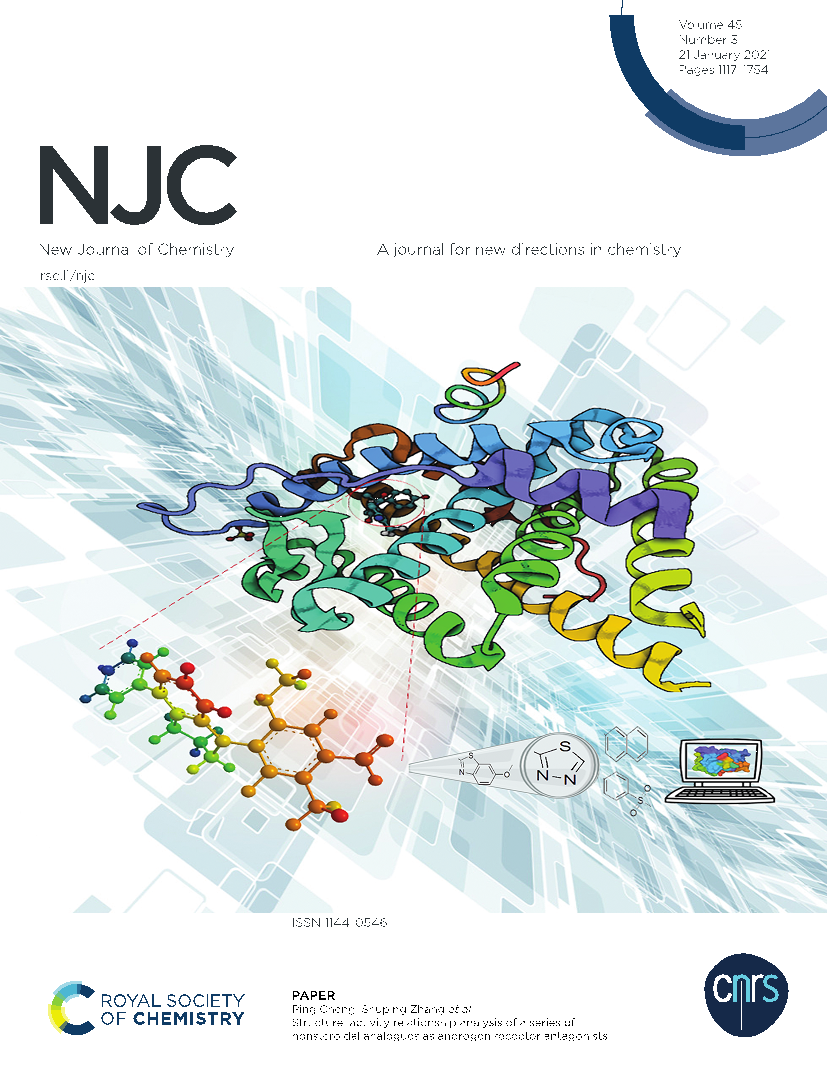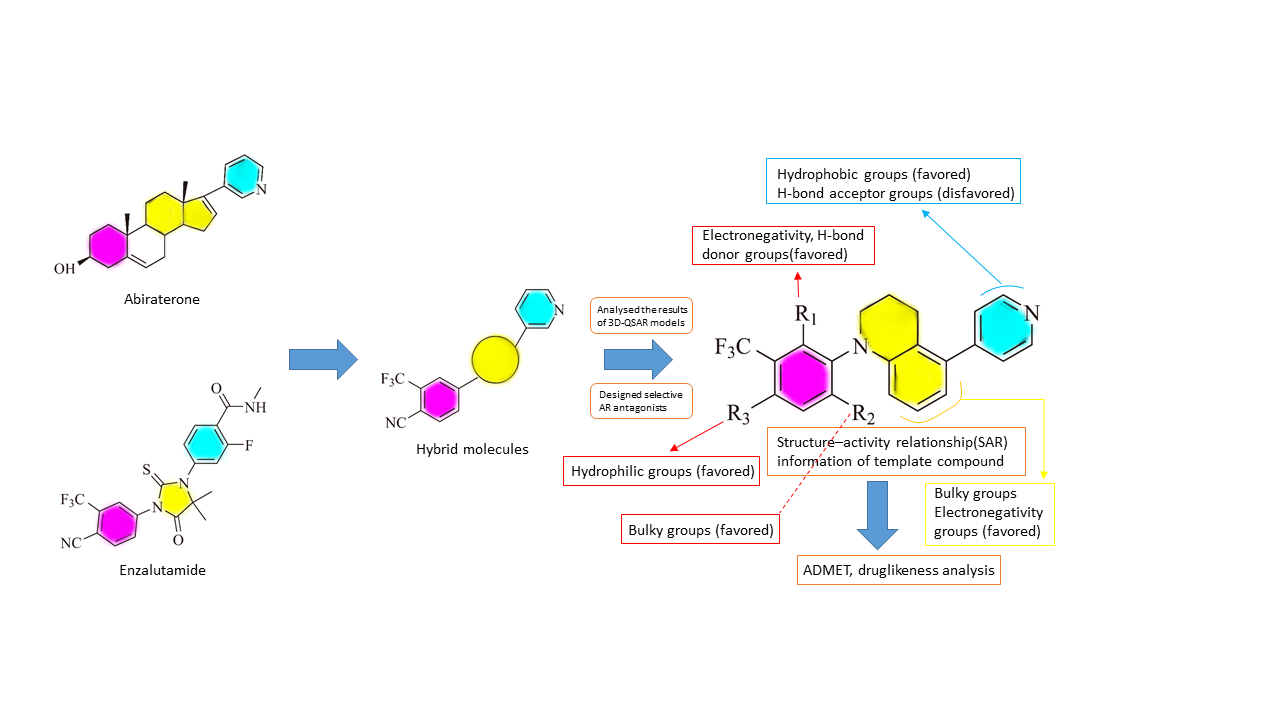March 15, 2021
| By College of Science | Copyedited by William, Zhang Liu
Recently, the Environmentally Benigh Chemistry and Biomaterials Team led by prof. Zhang Shuping used simulation method of molecular drug design to make new advance in castration- resistant prostate cancer,CRPC. The relative achievement was published in international academic journal New Journal of Chemistry as a cover paper.

Prostate cancer is the second leading cause of cancer death among men. Nowadays, the main therapeutic strategy of prostate cancer is using the androgen receptor (AR) antagonists. However, their anti-cancer properties still need to be improved and a novel AR antagonist should be designed for patients showing different levels of drug resistance after a period of treatment. In this study, they used computer-aided drug design, which is a powerful tool for drug design and development, successfully designing several new AR antagonists with high anti-cancer activity. They successfully built a three-dimensional quantitative structure-activity relationship (3D-QSAR) model for the AR antagonists through the comparative molecular field analysis (CoMFA) and comparative molecular similarity indices analysis (COMSIA) of the reported experimental data. The optimal prediction models (Q2=0.672 and 0.663, R2=0.992 and 0.994, rpred2 =0.745 and 0.868 for CoMFA and COMSIA) were obtained. These results reflected the constructed 3D-QSAR models were stable and robust with predictive ability. Based on the results of the 3D-QSAR, they found that that the negative charge groups at the R1 position, the bulky substituents at the R2 position, and the hydrophilic groups at the R3 position all can effectively improve the anti-cancer properties of AR antagonists. Based on these clues, several new AR antagonists were designed with high activity of anti-prostate cancer .Furthermore, for the novel AR antagonists, their ADMET Properties and drug likeness were also analysed. The result show that these novel AR antagonists also have reasonable pharmacokinetics and drug-like properties. The results can provide important references for the design and development of highly effective AR antagonists.

The team has developed methods and techniques for simulating and predicting chemical properties of substance. The method is helpful to find lead compound and cut short period of developing biological medicine. The research achievement contributed by Yuan Miao, a senior postgraduate majoring in Chemistry guided by professor Zhang Shuping and Dr. Cheng Ping.
Link to the paper: https://pubs.rsc.org/en/content/articlelanding/2021/nj/d0nj04204h#!divAbstract


